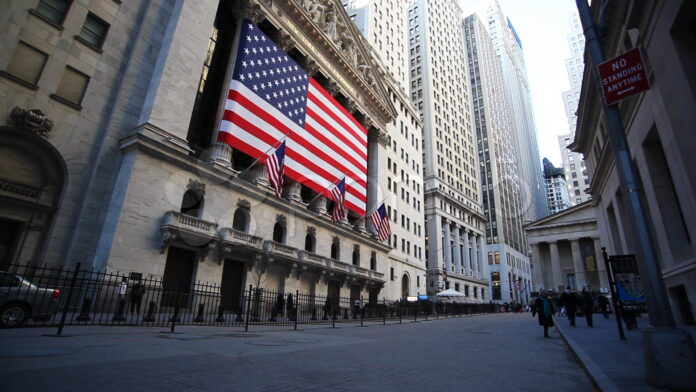Announcements of sweeping tariffs by President Donald Trump have sent Wall Street into turmoil. The move, concerning the second of his ‘Liberation Day’ economic agenda, is seen as a boost to domestic manufacturing but has rattled investors and driven the major indices southwards. Futures on the S&P 500 plunged 3.6 percent, while those on the Nasdaq tumbled 4.5 percent, reflecting great market worries. Many of these stocks within the technology, retail, and automotive sectors have faced losses from the uncertainty that grips the market. Nevertheless, a few select companies have been able to capitalize on the trade shift.
Biggest Losers: Tech Stocks Take a Beating
Things have been particularly tough for the tech sector, which is reliant on global supply chains, to suffer losses.
- Apple (-7.4%): Following the news that higher tariffs on Chinese imports could make the iPhone and other hardware components more expensive. Investors also fear higher costs and retaliatory tariffs from Beijing if the Chinese government were to choose retaliation.
- Amazon (-6.1%): The steep sell-off at Amazon came on the heels of worries about higher import costs of goods they sell through their massive e-commerce platform. It could also raise the cost of using cloud computing infrastructure, depending on the hardware purchased in a variety of global markets.
- Semiconductor Giant (-5.2%): The firm notched up a notable fall as rising tariffs on Chinese imports could disrupt its supply chain. But like many other chipmakers, Nvidia is dependent on its manufacturing and raw materials from Asia, which makes it at risk of trade disruptions.
Also read: US Stock Market Plunges After Trump’s Tariff Announcement
Retail Sector Slumps Under Cost Pressures
International supply chains have made many of the hardest-hit consumer goods companies.
- Lululemon (-11%): The majority of its manufacturing is in Asia, so mostly losing out. Imported goods would have higher costs and squeeze profit margins, and such costs may be passed on to consumers in the form of higher prices.
- Williams-Sonoma (-10%): Home goods retailer took a big hit because it has to heavily depend on imported furniture and kitchenware. Higher costs due to tariffs cause investors to worry about sales falling as consumers are shying away from the expensive products.
- Deckers Outdoor (-9%): In addition to giant Ugg boots and Teva sandals, the company also took a big loss. But Deckers, like other retail brands, depends on X Y manufacturing overseas, and the tariffs will cost more.
Tesla Volatility Amid Policy Shifts
A highly volatile trading session took place with Tesla (-7.3%). The stock later fell more than 6 percent after delivering lower than expected vehicles but rebounded, only to fall again after Trump’s tariff announcement. Anticipating supply chain disruptions and a rise in the price of materials, including lithium and aluminum, as well as their key role in the production of electric vehicles, the electric vehicle maker is facing additional cost pressures.
Broader Economic Impact & Investor Sentiment
Beyond stock price movements, though, it is expected that the new tariffs will have a wide range of repercussions. At a time when global markets are already delicate, economic growth, inflation, and supply chains could be damaged further by the growth in trade barriers.
Investors are also worried because of market uncertainty regarding prospective retaliatory measures from other countries, namely from China and the European Union, which could prolong trade conflicts. The response from foreign governments could include tariffs on US exports, leaving industries from agriculture to manufacturing to technology further weakened.








